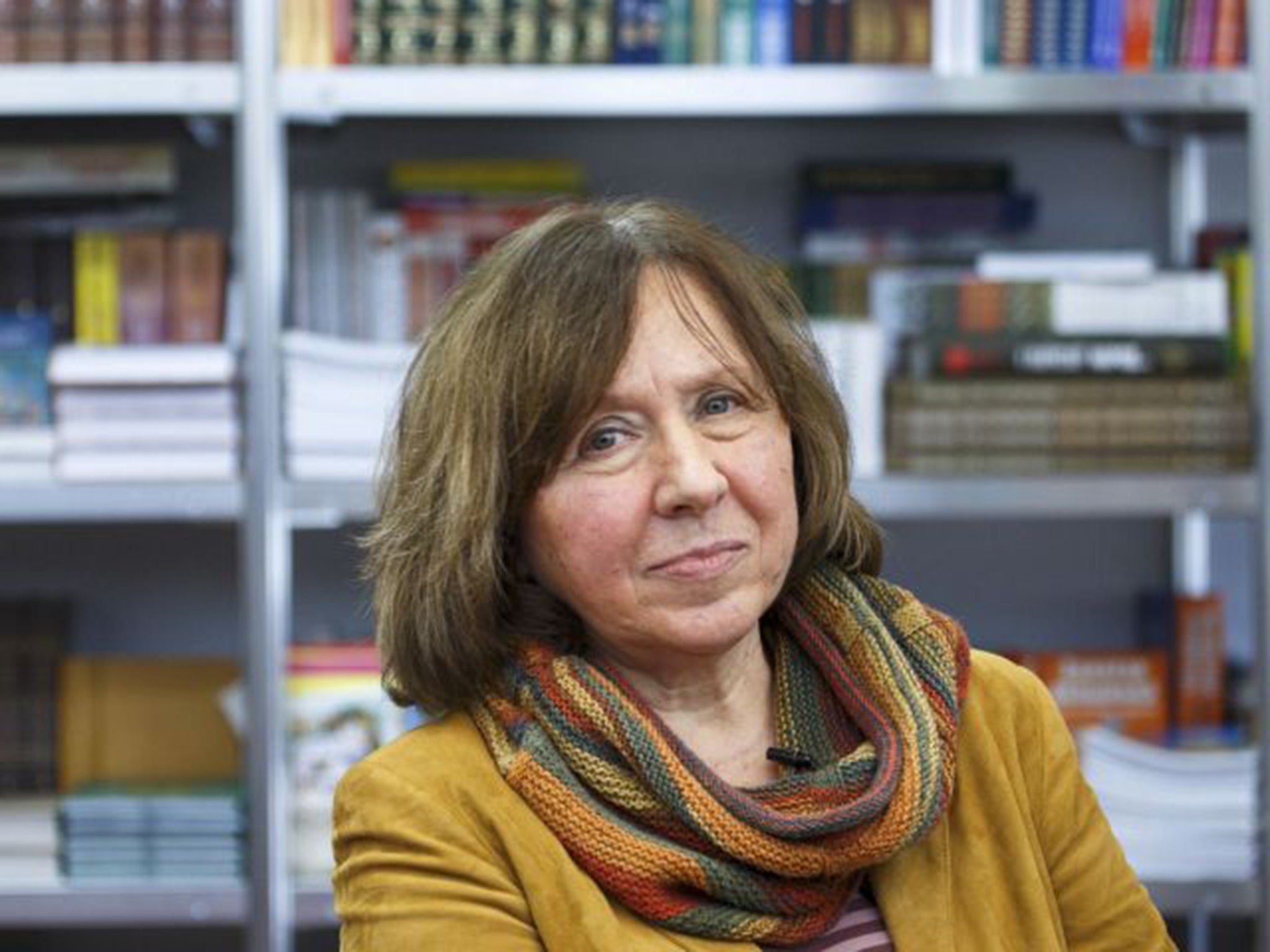Awarding the Nobel Prize for Literature to Belarusian Sveltana Alexievich is a bold decision
A journalist, playwright and screenwriter, Alexievich’s oeuvre is dominated by her intrepid and beautifully researched works of non-fiction

Your support helps us to tell the story
From reproductive rights to climate change to Big Tech, The Independent is on the ground when the story is developing. Whether it's investigating the financials of Elon Musk's pro-Trump PAC or producing our latest documentary, 'The A Word', which shines a light on the American women fighting for reproductive rights, we know how important it is to parse out the facts from the messaging.
At such a critical moment in US history, we need reporters on the ground. Your donation allows us to keep sending journalists to speak to both sides of the story.
The Independent is trusted by Americans across the entire political spectrum. And unlike many other quality news outlets, we choose not to lock Americans out of our reporting and analysis with paywalls. We believe quality journalism should be available to everyone, paid for by those who can afford it.
Your support makes all the difference.Awarding the Nobel Prize for Literature to a Belarusian investigative journalist is a bold decision, even in the history of an academy that has never shied away from the most surprising, leftfield choices. But recognising Sveltana Alexievich is also a brilliant choice that recalibrates the status of “non-fiction” in the literary canon.
A journalist, playwright and screenwriter, Alexievich’s oeuvre is dominated by her intrepid and beautifully researched works of non-fiction. The Swedish academy hailed her “for her polyphonic writings, a monument to suffering and courage in our time”.
Alexievich, aged 67, has often spent years collating information and first-person accounts for her books. A dissenting voice in Belarus, she has periodically been forced into exile.
Her books have traced real people’s lives – often women’s as well as children during wartime – such as her first, War’s Unwomanly Face (1985), based on interviews of hundreds of women who experienced the Second World War, which has sold over two million copies.
Zinky Boys – Soviet Voices from a Forgotten War, drew a portrait of the Soviet Union’s war in Afghanistan, while Voices from Chernobyl: Chronicles of the Future, presented a collage of voices on the consequences of the nuclear disaster. Her victory goes against all bookmaker’s predictions (they were expecting Philip Roth, Joyce Carol Oates or Haruki Murakami). But this accolade will pique worldwide interest and draw large swathes of new readers.
Her latest book, Second-Hand Time (translated by Bela Shayevich), is an oral history about nostalgia for the Soviet Union for which she spent 20 years travelling across post-Soviet states, talking to people about the legacy of the “red man” – the citizen created by the Soviet era – on their lives today.
It will be published by Fitzcarraldo Editions, an independent publishing house set up only a year and a half ago. Scheduled to be published in October 2016, that date will most likely be brought forward to meet public demand. Jacques Testard, her publisher, said he was thrilled that a writer of non-fiction should be recognised. “I feel incredibly excited by this. Literature is another word for writing and she is one of the best non-fiction writers around,” he said.
The New Yorker writer, Philip Gourevitch, wrote an article on Alexievich last year entitled “Non fiction deserves a Nobel” in which he criticised the fact that it had been more than 50 years since a non-fiction writer had been distinguished by the academy.
He argued that this was due to an elitist and artificial separation between fiction and non-fiction. “There is a kind of lingering snobbery in the literary world that wants to exclude non-fiction from the classification of literature – to suggest that somehow it lacks artistry, or imagination, or invention by comparison to fiction.”
If nothing else, Alexievich’s achievement has put that right.
Join our commenting forum
Join thought-provoking conversations, follow other Independent readers and see their replies
Comments